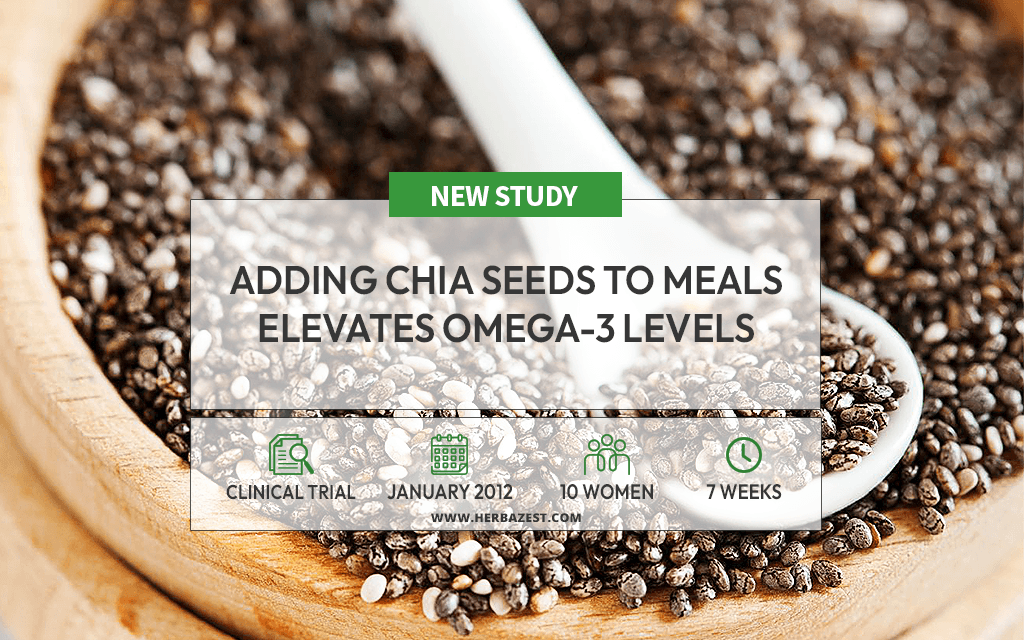Chia seeds are widely considered a superfood, primarily due to their high content of omega-3 fatty acids, fiber, and antioxidants. These seeds are particularly rich in alpha-linolenic acid (ALA), a plant-based omega-3 fatty acid that is essential for human health.
ALA can be converted in the body to longer-chain omega-3 fatty acids such as eicosapentaenoic acid (EPA) and docosahexaenoic acid (DHA), which play crucial roles in cardiovascular and cognitive health. However, the efficiency of this conversion can be limited as it's affected by factors such as age and estrogen levels.1 This clinical trial investigates the effects of chia seed supplementation on omega-3 fatty acid levels in postmenopausal women.
The Study
For this study, researchers from Appalachian State University recruited 10 postmenopausal women with an average age of 56 years and a body mass index (BMI) of 25 kg/m². Each participant was instructed to consume 25 grams of milled chia seeds daily for a duration of seven weeks.
The study utilized a within-subject design, where participants served as their own controls. This design involved collecting overnight fasted blood samples at the beginning of the study and six additional times throughout the study period. These samples were analyzed to measure concentrations of ALA, EPA, DHA, and DPA (docosapentaenoic acid).
The Results
The study's findings revealed significant changes in the plasma levels of ALA and EPA following chia seed supplementation.
- The plasma concentration of ALA increased significantly as early as one week into the supplementation period. By the end of the seven weeks, ALA levels were 138% higher than baseline levels.
- Plasma EPA levels showed a 30% increase above baseline by the end of the study period. This increase was strongly correlated with the rise in ALA, suggesting that the body effectively converts ALA from chia seeds into EPA.
The study did not find a significant change in plasma DPA levels. Interestingly, plasma DHA levels slightly decreased by the end of the study period.
What Does this Mean?
The study provides valuable insights into the nutritional benefits of chia seeds for postmenopausal women, a demographic that often faces increased heart disease risk and changes in metabolic health
Published in the Plant Foods for Human Nutrition journal, the results suggest that chia seeds are a potent source of ALA and can enhance the availability of EPA, an omega-3 fatty acid known for its anti-inflammatory properties and cardiovascular benefits.
For postmenopausal women, incorporating chia seeds into the diet could be a practical strategy to boost omega-3 fatty acid levels, potentially contributing to improved heart health and reduced inflammation.
Other herbs that may benefit menopausal women are maca, fennel, and ginseng.
Sources
- Plant Foods for Human Nutrition, Supplementation of milled chia seeds increases plasma ALA and EPA in postmenopausal women, 2012
Footnotes:
- International Journal of Environmental Research and Public Health. (2019). Fatty Acid Profile of Postmenopausal Women Receiving, and Not Receiving, Hormone Replacement Therapy. Retrieved July 2, 2024, from https://www.ncbi.nlm.nih.gov/pmc/articles/PMC6862544/





